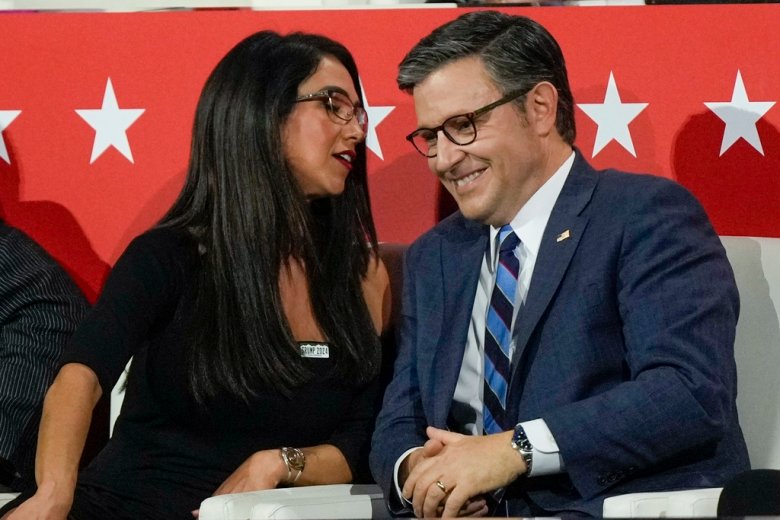Municipal bond investors are threatening to leave Colorado if voters adopt a proposed cap on property tax growth, putting the state’s largest source of infrastructure funding for new development in jeopardy.
“We’ve seen investors starting to pull back from the Colorado market,” said Tiffany Leichman, a public finance specialist at Sherman & Howard.
“If that money dries up, development is essentially going to come to a halt.”
The bond market fears have led a growing number of developers and financial industry insiders to speak out against Initiative 50, exposing new fractures in the coalition of business groups, Republican officials and conservative activists who would typically be expected to back a statewide tax cut.
A number of GOP lawmakers have criticized the proposal to amend the constitution, including Sen. Barbara Kirkmeyer of Brighton and Rep. Lisa Frizell of Castle Rock, two of the most influential Republicans at the Capitol on fiscal policy. Last week, Jon Caldara of the Independence Institute — who has backed a number of tax-limiting ballot measures of his own — entered the fray, calling it an “unworkable mechanism.”
Brought by conservative political nonprofit Advance Colorado, Initiative 50 would limit annual property tax revenue growth statewide to 4% in an attempt to address the skyrocketing tax bills of recent years. But the measure, which has qualified for the November ballot, would also tie a new constitutional knot around public finance in Colorado, with potentially wide-ranging consequences.
Property taxes are primarily used to fund city and county governments, schools and other local services. But they also help finance private development through special taxing entities like metropolitan districts and urban renewal authorities.
When developers build a new subdivision, they’ll often set up a metro district to finance the project’s infrastructure, such as roads and utilities, as well as community amenities like parks and recreation centers. To pay for it all, they issue tax-exempt bonds that are repaid through the future property tax bills of the community’s residents.
Bond investors worry a 4% statewide cap will trigger local property tax cuts that could prevent them from being paid what they’re owed.
In June, a group of eight law firms sent a letter to Advance Colorado and Colorado Concern, another supporter of the initiative, predicting that the tax-limiting measure would have a “severe” and “immediate” impact on the municipal bond market across the state. In July, the Colorado Municipal Bond Dealers Association weighed in with an open letter of its own, saying Initiative 50 will raise the cost of borrowing for local governments and slow the flow of capital to Colorado.
“I think it’s a dangerous game that we’re playing,” said Zach Bishop, a bond underwriter who heads the special district group at Piper Sandler. “The potential implications of passage of Initiative 50 are an increase in home prices for Coloradans because the land development process becomes more challenging for home builders.”
Karen Crummy, a spokesperson for the campaign in support of Initiative 50, dismissed the concerns in a statement to The Colorado Sun, insisting the measure would reduce housing prices, not increase them.
“These property tax increases are regressive and cruel, especially for young families trying to buy a home, or working-class families and seniors trying to stay in their homes,” Crummy said. “Voters will roll their eyes when they hear politicians, investment bankers and white-shoe lawyers argue that the sky will fall because the state can’t keep every cent of 30%, 40% or even 50% property tax increases.”
Welcome to The Unaffiliated, the politics and policy newsletter from The Colorado Sun. Each week, we take you inside the political arena to deliver news and insights on Colorado politics. Keep reading for even more exclusive news.
If you’re reading this newsletter but not signed up for it, here’s how to get it sent directly to your email inbox. Please send feedback and tips to jesse@coloradosun.com.
WHY 4% ISN’T AS MUCH AS IT APPEARS
We’ve written a lot in this newsletter about Initiative 108, another conservative measure that would cut property taxes by $3 billion. Its eye-popping cost has made it a target for public officials who worry about its impact on state and local government budgets.
But over the long term, Initiative 50 might be the more consequential of the two.
Statewide property tax revenue has grown by less than 4% just 15 times in the past 60 years, a Colorado Sun analysis of Department of Local Affairs data found. That means homeowners can expect the proposed cap to trigger a statewide tax cut more often than not.
Even though 4% is double the Federal Reserve’s 2% target for inflation, critics say it doesn’t allow enough of a cushion for growth and new development. As an example, if you build a $500,000 house on an empty patch of land worth $10,000, that property’s value would jump by 5,000%.
Colorado Concern and Advanced Colorado acknowledged this concern when they introduced other property tax cap proposals this year that had allowances for new development. But those measures didn’t make the ballot, and Initiative 50 has no such protections, leaving it in the hands of elected officials and the courts to decipher.
The tax cuts that would result are likely to lead to lawsuits, Leichman suspects. If special districts cut taxes as required by the amendment, bond holders might sue over a breach of their contract, which typically calls for taxes set at a certain level to repay the debt. If the district doesn’t cut taxes, taxpayers could sue.
Even if courts side with the bond holders, industry insiders say it could still have a chilling effect on new debt, which wouldn’t be protected by contractual guarantees in place before the cap.
Supporters point out that other states have implemented property tax caps without destroying their bond markets. And until 2020, Colorado had a property tax-limiting provision of its own in the Gallagher Amendment.
The difference is Colorado had a system under Gallagher for local jurisdictions to adjust their mill levies upward to cover debt payments when tax cuts were triggered.
Initiative 50 appears to require a statewide vote to exceed the 4% cap. That could take the power to problem-solve out of local officials’ hands.
WHAT TO WATCH
STORY: Mountain lion hunting ban heads to Colorado voters in November
BALLOT MEASURES
The proponents of several ballot measures reported that they had turned in their voter signatures this week ahead of the Monday deadline. They are the backers of:
THE NARRATIVE
Lauren Boebert is poised to become the dean of Colorado’s Republican congressional delegation

If U.S. Rep. Lauren Boebert wins reelection in November, she’ll be the most senior Republican member of Congress from Colorado and thus effectively the state’s highest ranking GOP official.
She’s trying to play the part.
Behind the scenes, Boebert has been meeting with Republican candidates and offering to support their campaigns. Last week, she offered an adult-in-the-room opinion on the controversy surrounding Colorado GOP Chair Dave Williams. She is trying to unite warring factions of the party.
It’s a far cry from the Boebert that we used to know — the right-wing firebrand quick to spit in the eye of anyone who challenged her or her beliefs. But there is a power vacuum in Republican politics in Colorado right now, and she’s trying to fill it.
“I stand ready to publicly help and provide support to Republicans up and down the ballot, regardless of whether or not I agree with them on every issue,” she said in a Facebook post calling on Williams to “offer support, mend bridges and present a clear gameplan of how we can win together in November.”
A big sign of Boebert being a team player: Boebert’s campaign manager, Drew Sexton, attended a gathering last week to celebrate the opening of a National Republican Congressional Committee battleground office in the 8th Congressional District to benefit GOP candidate Gabe Evans.
Whether or not everyone will embrace Boebert remains to be seen.
By switching congressional districts last year, Boebert angered a long list of Republicans in the 4th Congressional District, where she’s now running for reelection. And not everyone is happy to see her criticizing Williams.
“I’m frankly shocked,” Lisa Frank, a Republican activist who lives in southern Colorado, replied to Boebert’s post about Williams. “After everything everyone has done to get you elected, you come out with division yourself. I believe you should keep us informed on how you’re winning the war for we the people, not dividing Colorado.”
In an email to party activists, Williams seemed to be talking about Boebert when he blasted “those who have supported us in the past but are unable to withstand our critics’ negative pressure.”
The Colorado GOP endorsed Boebert in her primary, and in turn Boebert endorsed Williams in the 5th Congressional District Republican primary.
NEW ANTI-BOEBERT PAC
The federal Defeat Boebert PAC was formed on July 19. It’s registered out of Tampa, Florida, though its designated agent is Scott Martinez, a prominent Democratic campaign attorney who lives in Denver. When reached this week by The Unaffiliated, he wouldn’t provide details about the PAC and who is behind it.
As we’ve reported many times before, there are few Republican figures that Democrats can invoke to raise as much money as Boebert.
TRISHA CALVARESE’S FUNDRAISING HAUL
Democrat Trisha Calvarese raised $750,000 in the five weeks after the primary in the 4th Congressional District, where she faces Boebert in November, according to Calvarese’s campaign.
The campaign said the donations came from 24,000 unique donors who gave an average of $23 each. All but 1% of the donations were under $200, according to Calvarese’s team.
“We have momentum, and we’re going to keep going to every community in our district to earn people’s trust, their votes, and to win in November,” Calvarese said in a written statement.
Analysis: It’s not surprising that Calvarese is raising so much money given Boebert’s national profile and how much Democrats loathe her. But don’t read too much into the dollars. Remembe, nearly $15 million was raised by the Democrat who tried — unsuccessfully — to unseat U.S. Rep. Marjorie Taylor Greene in Georgia.
Meanwhile, Democrat Adam Frisch, who is running in the 3rd Congressional District, where he narrowly lost to Boebert in 2022, sent out a fundraising email seeking to raise money for Calvarese.
Frisch’s fundraising solicitation means he’s now invoking Boebert to raise money both for his campaign — in which he’s facing a different Republican — and Calvarese’s.
“Trisha can finish the job and send Boebert packing,” the missive from Frisch said.
Want to reach Colorado political influencers and support quality local journalism? The Sun can help get your message attention through a sponsorship of The Unaffiliated, the must-read politics and policy newsletter in Colorado. Contact Sylvia Harmon at underwriting@coloradosun.com for more information.
THE POLITICAL TICKER
ELECTION 2024
The Center for Politics at the University of Virginia, the nonpartisan election prognosticator known colloquially as Sabato’s Crystal Ball, has changed its competitiveness ratings for two Colorado congressional districts. The group now calls the 8th Congressional District, which is represented by U.S. Rep. Yadira Caraveo, a toss-up, down from “leans Democratic.” The group also now rates the 3rd Congressional District, where Republican Jeff Hurd is battling Democrat Adam Frisch, as “likely Republican,” up from “leans Republican.”
8TH CONGRESSIONAL DISTRICT
State Rep. Gabe Evans, a Fort Lupton Republican running to represent the 8th Congressional District against Democratic U.S. Rep. Yadira Caraveo, is buying TV ad time for the coming months, according to contracts filed with the Federal Communication Commission. Some of the air time is on Spanish-language channels. Caraveo, meanwhile, has been blanketing the digital airwaves with ads touting her record as a pediatrician and on abortion. The American Action Network, a conservative political nonprofit, is running digital ads attacking Caraveo over immigration and public safety.
COLORADO LEGISLATURE
The Democratic Legislative Campaign Committee has named Vivian Smotherman’s state Senate campaign in Senate District 6 a “race to watch” this year. Smotherman, a Durango farmer and Navy veteran, is trying to unseat Republican Sen. Cleave Simpson of Alamosa in a district that leans in Democrats’ favor. It’s unclear if the proclamation will come with financial or technical support for Smotherman. Meanwhile, Simpson has been endorsed by former U.S. Rep. John Salazar, a Democrat. “Put parties and politics aside,” Salazar said in a written statement. “Put our southern and southwest Colorado families, values, needs, and interests first. That’s Cleave Simpson.”
READ MORE
🔑 = source has article meter or paywall
THIS WEEK’S PODCAST: Alarming reports spark questions about future of Colorado’s pension program
ELECTION 2024
New issue committees form to influence voter opinion on ballot measures

Two new issue committees have formed to influence voter opinion on a pair of measures headed for the November ballot.
Conserve and Protect Our Water will support the initiative referred to the ballot by the legislature that would let the state keep all of the tax revenue generated by sports betting. The tax dollars go toward water projects.
The state can currently only keep $29 million of the revenue. Fiscal forecasts indicate the cap is likely to be exceeded in the next year or two.
The issue committee was formed on July 23 by Brian Jackson, director of Western water for the Environmental Defense Fund.
First Choice Counts, an issue committee formed on July 24 by Jason Lupo, who ran unsuccessfully as a Republican this year for a state House seat, will oppose Initiative 310. That’s the measure that hasn’t made the ballot yet but would change Colorado’s primaries so candidates from all parties run against each other, followed by a ranked choice general election.
Lupo, who lives in Monument, has transformed his campaign website into a site for First Choice Counts.
ABORTION RIGHTS COMMITTEE
Colorado For Protecting Reproductive Freedom, the issue committee supporting the ballot measure that would enshrine abortion access in the state constitution, raised $160,000 between June 27 and July 27, and spent about $100,000 during that time.
The committee had more than $850,000 in the bank heading into August.
VET MEASURES
All Pets Deserve Vet Care, the issue committee supporting two pending ballot measures that would allow for veterinary telehealth and a new, mid-tier veterinary professional position, spent $435,660 during that same span, almost all of which to pay signature gatherers.
The group also raised $250,000 from the ASPCA during that period.
Most of the committee’s funding has come from the Dumb Friends League, which has donated $750,000 to the cause.
THE BIGGER PICTURE
🔑 = source has article meter or paywall

The Colorado Sun is part of The Trust Project. Read our policies.
Corrections & Clarifications
Notice something wrong? The Colorado Sun has an ethical responsibility to fix all factual errors. Request a correction by emailing corrections@coloradosun.com.


